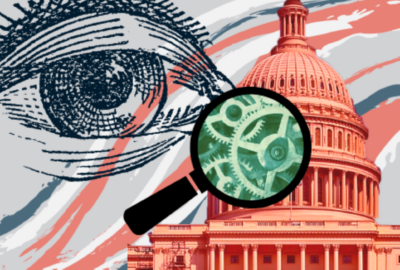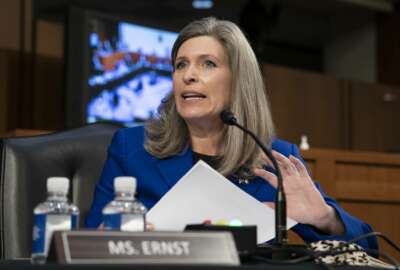Smaller budgets, lower response rates: Report warns statistical agencies struggling to meet mission
The report finds a national decline in trust in government corresponds with lower response rates for federal statistical surveys.
More than a dozen federal statistical agencies are having a harder time producing quality data. Part of the problem is fewer individuals filling out the surveys that power this data.
Add staffing and budget shortages, and the American Statistical Association says the mission of these agencies is at risk.
Former Chief Statistician of the U.S. Nancy Potok, the report’s co-author, said federal statistical data powers many key decisions across government and industry — but that the agencies responsible for that data are finding it harder to produce quality results.
“We found agencies were doing a very good job of really maintaining what they’ve been doing, but that the world has changed significantly since they started doing it,” Potok said. “And their challenge is, how do they keep up with the changing information demands?”
The report finds that a national decline in trust in government corresponds with lower response rates for federal statistical surveys.
“Things that people will post on Facebook, they would never tell a government interviewer,” Potok said.
The report also states that federal statistical agencies lack “professional autonomy,” meaning they remain vulnerable to political meddling and improper influence.
“The agencies didn’t have any protection, really. There are statistical directives that come out from OMB. There’s a little bit of language in the Evidence Act, but we thought every agency needs to have their own authorizing legislation,” Potok said.
“What we found was that in some instances, they were not leaving the technical ‘how’ to the statistics professionals — the methodology decisions,” she added. “We really wanted to see a lot more separation between what should be collected to inform public policy, and how to have objective, trustworthy methodology.”
Impact of smaller budgets on data collections
The agencies producing this statistical data are also feeling the effect of tighter budgets.
Total non-defense discretionary spending increased by 16% between 2009 and 2024. But budgets of the statistical agencies decreased during that same period — excluding an increase in funding for the 2020 census and a nationwide census of farms and ranches that the Agriculture Department conducts every five years.
For example, the Bureau of Labor Statistics, which produces the unemployment figures, saw an 18% budget cut over that period.
“You see this downward trend in real terms, and that’s a problem,” Potok said. “That has an effect on their ability to do the survey that is the underpinning of the unemployment.”
The report finds that part of the problem is a lack of support from their parent agencies.
“Sometimes they’re very buried down in the hierarchy and the bureaucracy, and they don’t get the visibility and the support that they need,” Potok said. “A lot of these smaller agencies in particular, depend on the parent agencies for hiring, for their IT support, and if you’re putting out economic indicators, and really important things that just have to be right have to be on time, you need to be able to depend on that support from the parent agencies.”
Among its recommendations, the report urges Congress to pass legislation to extend the authority in the Foundations for Evidence-Based Policymaking Act — a sweeping piece of legislation that included a requirement for agencies to name chief data officers — that would enable data sharing between statistical agencies, and from other federal and state agencies.
“To meet user needs, agencies require access to alternative data sources to blend with data from surveys, which the public is increasingly less willing to answer. Yet the Evidence Act, for example, does not provide for sharing of business data to all the statistical agencies or for sharing of state data with the federal statistical agencies,” the report states.
The report also urges lawmakers to fund statistical agencies with budgets commensurate to their responsibilities.
“Adequate funding levels, as well as authority for multi-year funding, are essential to enable statistical agencies to regularly update and supplement long-running data series and to test and implement data collection improvements.”
Copyright © 2024 Federal News Network. All rights reserved. This website is not intended for users located within the European Economic Area.
Jory Heckman is a reporter at Federal News Network covering U.S. Postal Service, IRS, big data and technology issues.
Follow @jheckmanWFED






